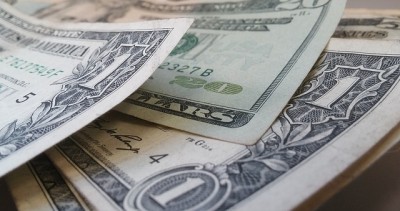Most of us know that the current global economic system is largely built upon risky endeavors and an endless cycle of debt. As a result, it seems one financial crisis after another is leaving families and local communities paying the price.
What our global monetary system comes down to is what we have chosen to support and believe in. That is what keeps it going: psychology. The US dollar doesn’t really have sufficient gold backing it up anymore. And a worldview of fear, intimidation, scarcity and greed seem to keep breathing life into an economic system that cares nothing about people.
But what if we started to think differently about money? What if we decided that US dollars (or credit cards) didn’t have to be the only form of exchange? For isn’t that what money by its very definition is? Money is basically a form of exchange. It’s truly heartbreaking that so many lives have been destroyed by greed over it.
An Alternative Worth Considering
Along with other forms of alternative local currencies, time banking (or dollar-hours) is a way of exchanging something of value without using the US dollar. One of the best things about this form of exchange is that there are no taxes imposed because no real money changes hands.
The idea behind time banking is that you earn a time unit (such as a dollar-hour) for each hour that you have spent doing some sort of service for someone else, such as gardening or helping to paint a garage. Each dollar-hour earned can then be used to purchase an hour’s worth of service from someone else.
New Book Reveals Gold-Buying Secrets That Dealers Don’t Want You To Know About…
For example, if I teach 10 hours of trumpet lessons, I will earn 10 dollar-hours to spend as I need. This is a great form of exchange in communities where people have a variety of unique skills that they can share with one another.
Because you can spend your hour-dollars on another service, this makes it more lucrative than simply volunteering your time. While we should absolutely help others because it’s the right thing to do, time banking gives an opportunity to exchange services when money is running short.
Using It In a Community
In formal time-bank memberships, you sign up as a local member, list the services you offer (such as home repair) on an online database. In the database, you also can search to find out what services other members are offering in your community. This gives you an opportunity to connect with others in your community in a new way and to help one another.
Earned time credits are logged into the online system, and then you can choose to either spend the credits yourself or pass them along to another time-bank member. Members without Internet access are typically paired up with another member who can help them with the online tasks.
Time credits can be earned and applied to individuals, groups or organizations (like churches and other non-profits that typically don’t have a ton of extra cash lying around).
Orientation meetings are offered to new members to give them an introduction to the time-bank system. Community events typically are held regularly to facilitate networking between members and to grow an awareness of which skills each individual member has.
Time banking became especially popular in the US after the financial crises of 2008, when unemployment jumped throughout the country and people had a lot more time than money.
While time banking cannot fulfill all of our needs for currency exchange, it can certainly be a part of the solution when services are needed within our communities. For more information about time banks, how they work and how to find out if there is a time bank near you (you also can start your own), check out timebanks.org, or hOurworld.org.
Have you ever taken part in a time bank? What advice would you add? Share it in the section below:
